An FDA advisory panel tended to embrace a new gene therapy treatment from Vertex and CRISPR for sickle cell anemia on Tuesday.



Nearly five years ago, DeepMind, one of Google’s more prolific AI-centered research labs, debuted AlphaFold, an AI system that can accurately predict the structures of many proteins inside the human body. Since then, DeepMind has improved on the system, releasing an updated and more capable version of AlphaFold — AlphaFold 2 — in 2020.
And the lab’s work continues.
Today, DeepMind revealed that the newest release of AlphaFold, the successor to AlphaFold 2, can generate predictions for nearly all molecules in the Protein Data Bank, the world’s largest open access database of biological molecules.

According to the Chinese Ministry of State Security, “certain countries” are likely working on incredibly potent ethnic bioweapons.
China has blown the whistle on the potential dangers of what it calls “genetic weapons” that could prove to be an incredibly potent weapon of mass destruction, the Global Times reports. On Monday, October 20, 2023, the Chinese Ministry of State Security released a statement on WeChat warning that a “certain” foreign non-governmental organization (NGO) had recruited Chinese “volunteers” to collect biodiversity distribution data under the guise of biological species research to steal China’s species data.
AnnaStills/iStock.
Bioweapon of mass destruction.
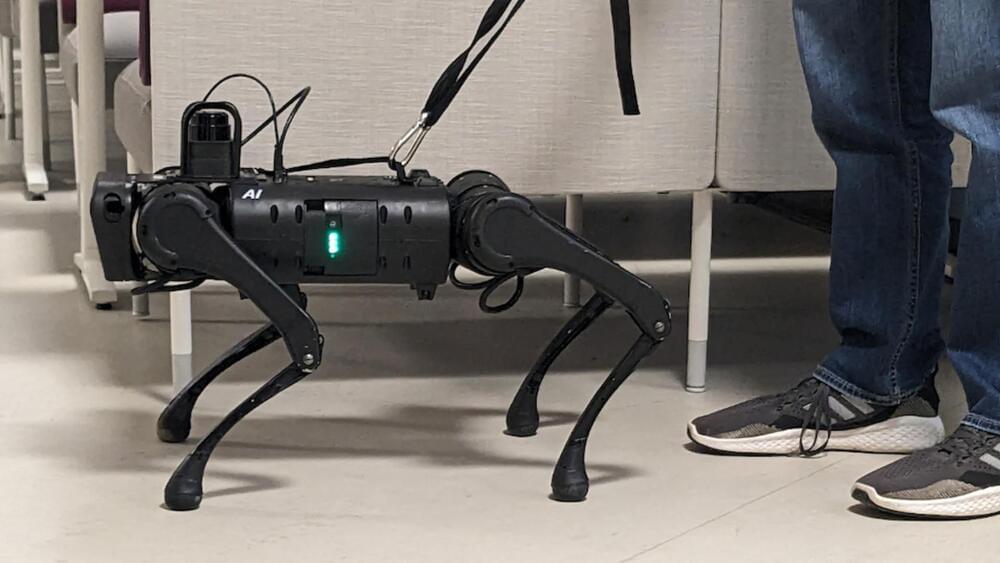
The robot guide dog possesses the ability to respond to tugs on a leash.
Researchers have created a robot guide dog to make life easier for the visually impaired with its ability to respond to tugs on a leash. The team of engineers at Binghamton University’s Computer Science Department in New York State has been developing a robotic seeing-eye dog to improve accessibility for those who are visually impaired. Last year, they performed a trick-or-treating exercise with its quadruped robotic dog.
Now, they have demonstrated a robot dog leading a person down a lab hallway, confidently and carefully reacting to directive instructions. Engineers were surprised that throughout the visually impaired… More.
Stephen Folkerts ‘24.
The team of engineers at Binghamton University’s Computer Science Department in New York State has been developing a robotic seeing-eye dog to improve accessibility for those who are visually impaired. Last year, they performed a trick-or-treating exercise with its quadruped robotic dog.
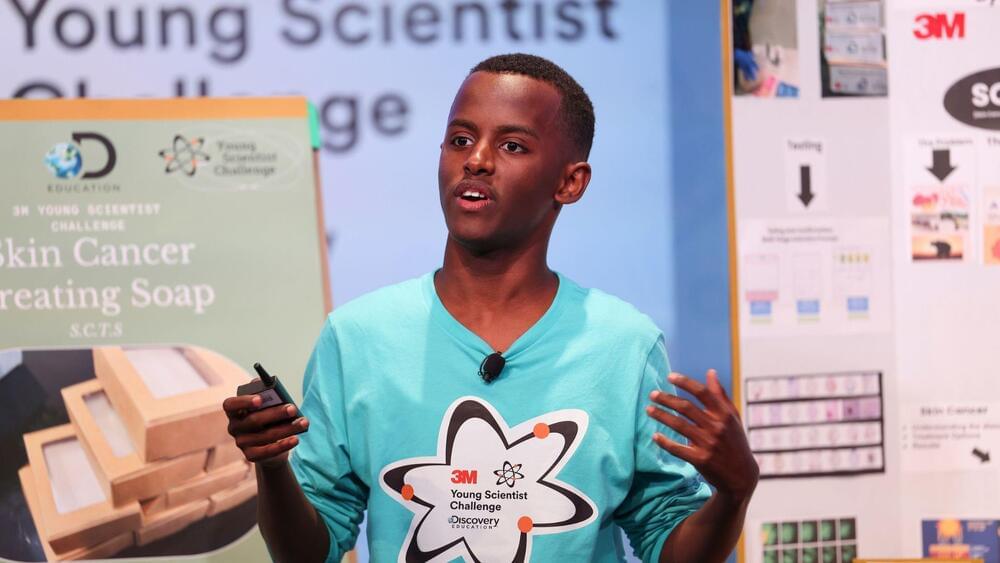
The Melanoma Treating Soap (MTS) was created using cancer-fighting chemicals, mainly Imidazoquinoline, integrated with a nanolipid-based particle transporter.
As child prodigies emerge in the world of innovation at younger ages than ever before, a 14-year-old student named Heman Bekele, residing in Fairfax, Virginia, developed a soap called MTS (Melanoma Treating Soap) to treat skin cancer.
Bekele’s efforts earned him the top prize in the 3M Young Scientist’s Challenge this year, a competition that motivates children to devise innovative solutions for common issues.
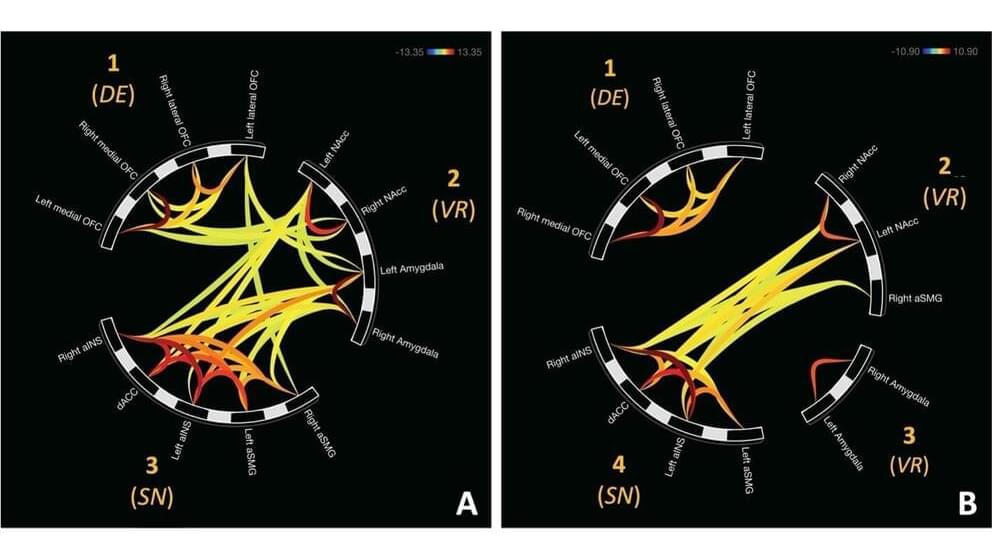
Human decision-making has been the focus of countless neuroscience studies, which try to identify the neural circuits and brain regions that support different types of decisions. Some of these research efforts focus on the choices humans make while gambling and taking risks, yet the neural underpinnings of these choices have not yet been fully elucidated.
Researchers at University of Louisville carried out a study aimed at better understanding the patterns in neural network communication associated with ‘bad’ decisions made while gambling. Their paper, published in Frontiers in Neuroscience, shows that different types of ‘bad’ decisions made while gambling, namely avoidant and approach decisions, are associated with distinct neural communication patterns.
“Our recent work follows a line of research that examines how humans approach rewarding and punishing situations in the environment,” Brendan Depue and Siraj Lyons, the researchers who carried out the study, told Medical Xpress.
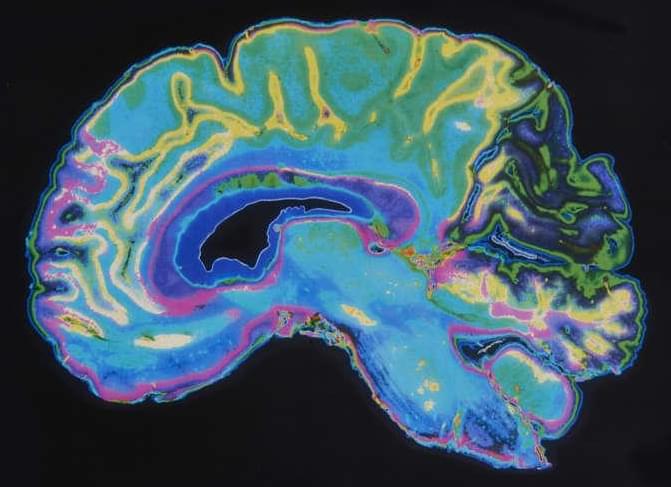


In a study of more than 2,000 chest X-rays, radiologists outperformed AI in accurately identifying the presence and absence of three common lung diseases, according to a study published in Radiology, a journal of the Radiological Society of North America (RSNA).
“Chest radiography is a common diagnostic tool, but significant training and experience is required to interpret exams correctly,” said lead researcher Louis L. Plesner, M.D., resident radiologist and Ph.D. fellow in the Department of Radiology at Herlev and Gentofte Hospital in Copenhagen, Denmark.
While commercially available and FDA-approved AI tools are available to assist radiologists, Dr. Plesner said the clinical use of deep-learning-based AI tools for radiological diagnosis is in its infancy.
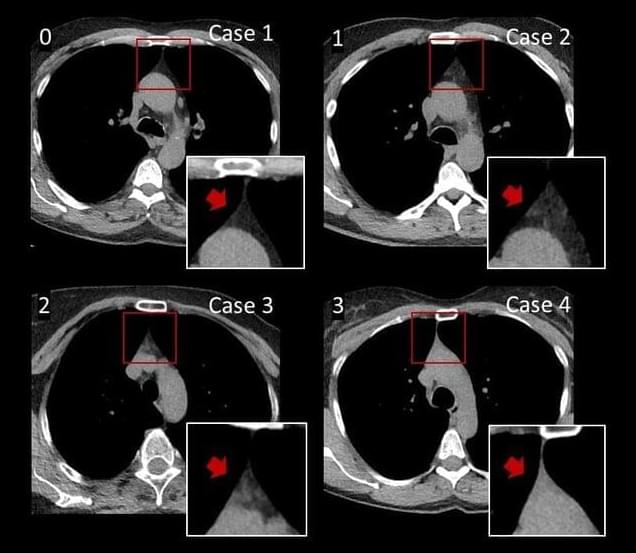
The thymus, a small and relatively unknown organ, may play a bigger role in the immune system of adults than was previously believed. With age, the glandular tissue in the thymus is replaced by fat, but, according to a new study from Linköping University, the rate at which this happens is linked to sex, age and lifestyle factors. These findings also indicate that the appearance of the thymus reflects the aging of the immune system.
“We doctors can assess the appearance of the thymus from largely all chest CT scans, but we tend to not see this as very important. But now it turns out that the appearance of the thymus can actually provide a lot of valuable information that we could benefit from and learn more about,” says Mårten Sandstedt, MD, Ph.D., at the Department of Radiology in Linköping and Department of Health, Medicine and Caring Sciences, Faculty of Medicine and Health Sciences, Linköping University.
The thymus is a gland located in the upper part of the chest. It has been long known that this small organ is important for immune defense development in children. After puberty, the thymus decreases in size and is eventually replaced by fat, in a process known as fatty degeneration. This has been taken to mean that it loses its function, which is why the thymus has for a long time been considered as being not important in adult life.